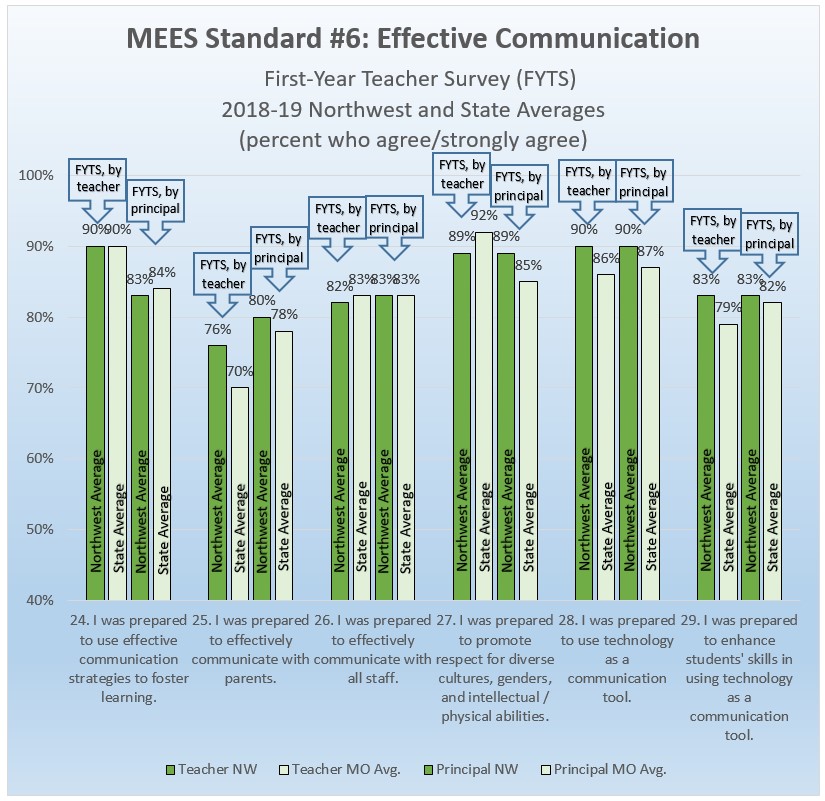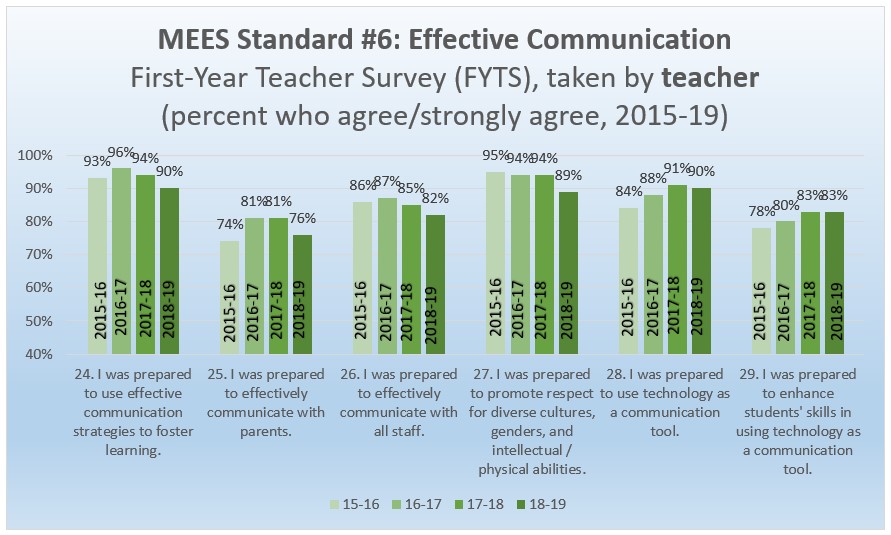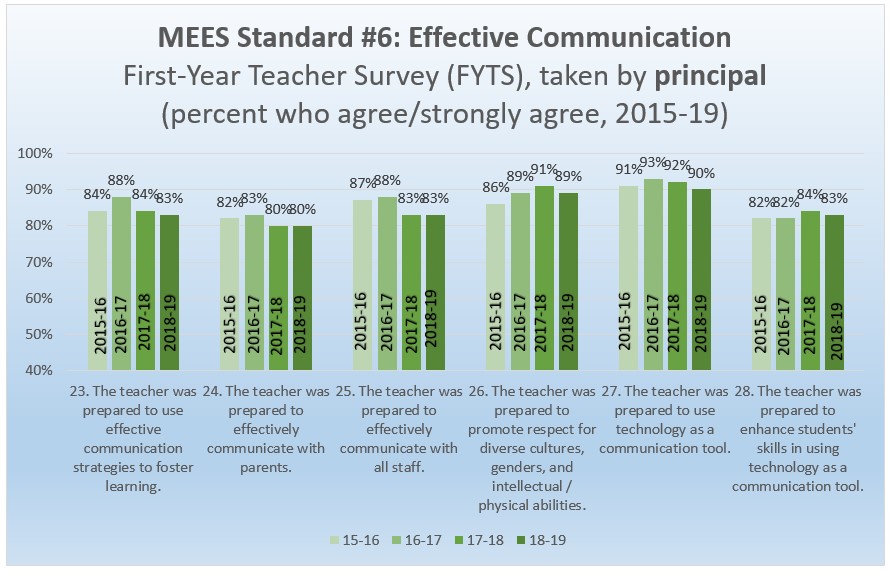As initially discussed previously in section 1.3 of the quality assurance report, all Northwest teacher, leader, and counselor candidates upon completion understand and engage local and school communities, and communicate and foster relationships with families/guardians/caregivers in a variety of communities. Further, all teacher, leader, and counselor candidates engage in culturally responsive educational practices with diverse learners and do so in diverse cultural and socioeconomic community contexts.
This section expands upon those earlier findings with First-Year Teacher Survey (FYTS) data and demonstrates that candidates have the capacity to adapt these further into a variety of school contexts. It is recommended that if you have not already that you first go back and read section 1.3 of the quality assurance report and then return here before reading through the FYTS data that follows.
The Missouri Department of Secondary and Elementary Education (DESE) has a suite of six surveys educators complete in their first year of employment, which DESE has been collecting since the 2015-16 academic year. The First-Year Teacher Survey (FYTS), taken by teacher, in alignment with MEES Standard #6, asks completers six questions after their first year of teaching to assess their preparation in effective communication (FYTS questions 24-29). In addition, the First-Year Teacher Survey by principals (FYTS), taken by principal, which is completed by principals assessing Northwest teachers following their first year on the job, likewise has six similar questions regarding effective communication. In the first of these, as shown in the table below, 90% of completers in their first year and 83% of their principals “agreed” or “strongly agreed” that in their first year they were “prepared to use effective communication strategies to foster learning.” On another of these, 89% of completers in their first year and 89% of their principals “agreed” or “strongly agreed” that in their first year they were “prepared to promote respect for diverse cultures, genders, and intellectual/physical abilities.” On all six questions, Northwest-prepared candidates perceived themselves and were also perceived by their administrators to be comparatively similarly prepared than first-year teachers at peer institutions.

As a result of this data (and the accreditation self-study process), Northwest is taking steps, to be discussed in more detail in the “Conclusion: Findings and Recommendations” section of this report, in the 2019-20 academic year to provide a stronger finish to the old programs. In 2021-22, the first completers from the newly redesigned undergraduate programs and their principals will take the FYTS surveys, and Northwest looks forward to comparing their data to these current completers’ data.


The preceding graphical representations, and especially question #26, of perceptions of candidate quality reveal consistently strong evidence that Northwest program completers are well-prepared and skilled at culturally-responsive and reflective practice in support of diversity. See question 26.